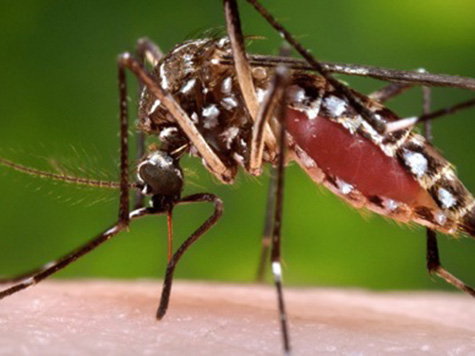
West Nile Virus cases have been increasing across California with the uptick in incidents, including two deaths resulting from the virus, leading to a warning and precautionary measures for residents across the state.
Sixteen human cases of West Nile virus have been confirmed just this week according to California’s West Nile Virus Website, adding to a year to date total of 35 symptomatic cases in ten separate counties. This is compared to just 18 cases at this time last year. Sacramento and Shasta counties have seen one case each of human death from the virus this year. The California Department of Public Health (CDPH) confirmed those first two deaths this week according to a press release.
According to the WNV website:
West Nile virus is transmitted to humans and animals by the bite of an infected mosquito. The risk of serious illness to most people is low. However, some individuals – less than one percent – can develop a serious neurologic illness such as encephalitis or meningitis. People 50 years of age and older have a higher chance of getting sick and are more likely to develop complications. Recent data also indicate that those with diabetes and/or hypertension are at greatest risk for serious illness.
Dead birds testing positive for West Nile total 1,123 for the year and 109 just this past week across 33 counties in the state. Last year at this time there were only 584 dead birds that had tested positive for the virus.
Mosquitos testing positive for the virus total 1,268 for all of 2014 so far and that is across 29 counties; however, 290 of those cases were discovered just this week.
While almost all other number for comparison are up from last year, the number of Sentinel chickens testing positive for the virus are drastically down this year with 56 confirmed cases so far in 2014, compared to 101 at this time in 2013.
The CDPH recommends three main precautions against exposure to the virus. Dubbed the “three Ds,” the suggestions are: Deet, Dawn and Dusk, and Drain.
Regarding Deet the CDPH says, “Apply insect repellent containing DEET, picaradin, oil of lemon eucalyptus or IR3535 according to label instructions. Repellents keep the mosquitoes from biting you. DEET can be used safely on infants and children 2 months of age and older.”
Regarding Dawn and Dusk the CDPH says, “Mosquitoes bite in the early morning and evening so it is important to wear proper clothing and repellent if outside during these times. Make sure that your doors and windows have tight-fitting screens to keep out mosquitoes. Repair or replace screens with tears or holes.”
The final D, Drain, is described by the CDPH, “Mosquitoes lay their eggs on standing water. Eliminate all sources of standing water on your property, including flower pots, old car tires, rain gutters and pet bowls. If you know of a swimming pool that is not being properly maintained, please contact your local mosquito and vector control agency.”
Finally, the California West Nile Virus Website encourages Californians to report all incidents of dead birds or tree squirrels on the website or to the toll free number 1-877-WNV-BIRD (968-2473).
Follow Michelle Moons on Twitter @MichelleDiana
Photo Credit: Reuters/James Gathany

COMMENTS
Please let us know if you're having issues with commenting.